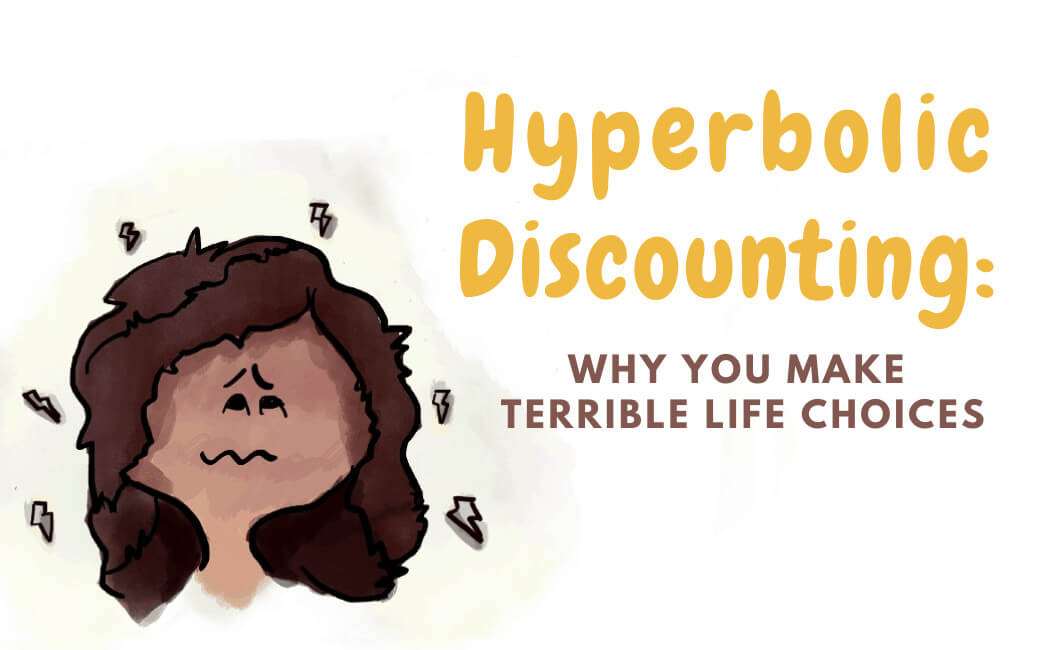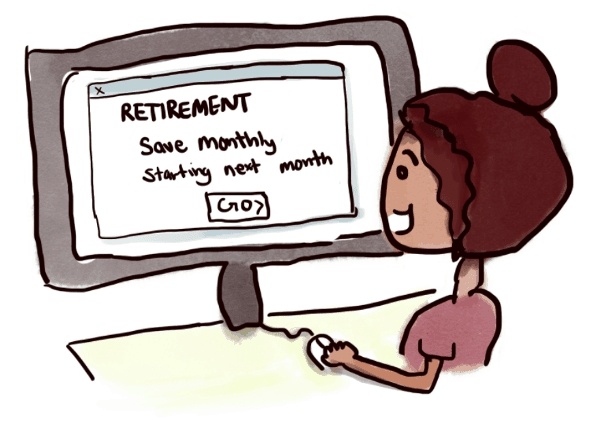Nir’s Note: This guest post is written and illustrated by Lakshmi Mani, a product designer working in San Francisco. Discover other reasons you make terrible life choices like confirmation bias, distinction bias, extrinsic motivation, fundamental attribution error, hindsight bias, and peak end rule.
You’ve fallen victim to hyperbolic discounting.
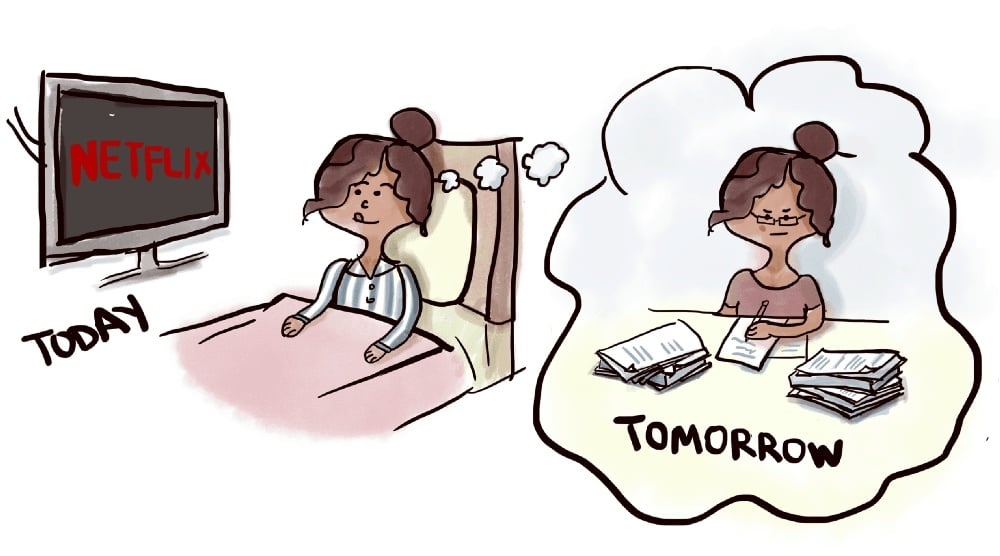
What is Hyperbolic Discounting?
Hyperbolic discounting, also called “present bias,” is a cognitive bias, where people choose smaller, immediate rewards rather than larger, later rewards. The discounted present value of the future reward follows a mathematical curve called a “hyperbola.”
Nir’s note: I’ve created a handy research-based workbook to help you to overcome hyperbolic discounting and stay productive. “How to Keep Hyperbolic Discounting from Killing Your Productivity”.
Researchers ran a classic experiment that illustrates the phenomenon. Imagine you’re given 2 choices: get a $100 today or $120 in a week. Here’s how most people choose:
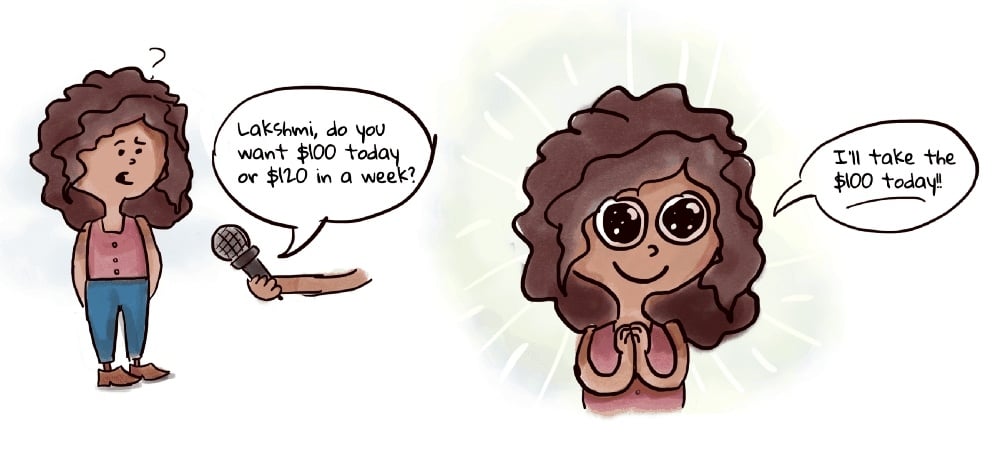
But when the same question is asked with the same one week interval, but a year in the future, we largely choose the bigger reward.
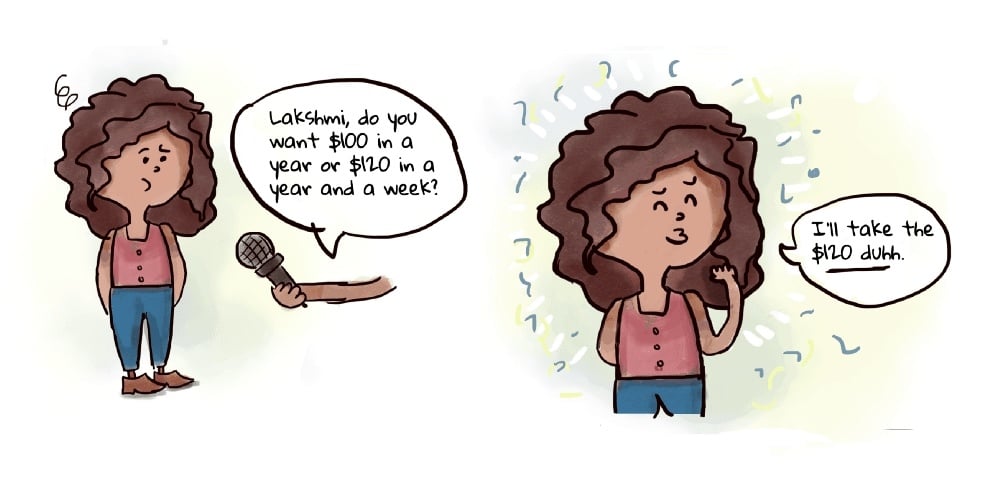
We are impatient and prefer immediate rewards in the short-term — present bias. But we’re more patient and wait for better rewards in the long term.
Unfortunately, the decisions you have to make in everyday life are not as clear or easily comparable. Say you’re going on vacation in a few months. How do you choose between enjoying a cookie right now versus looking good at the beach?
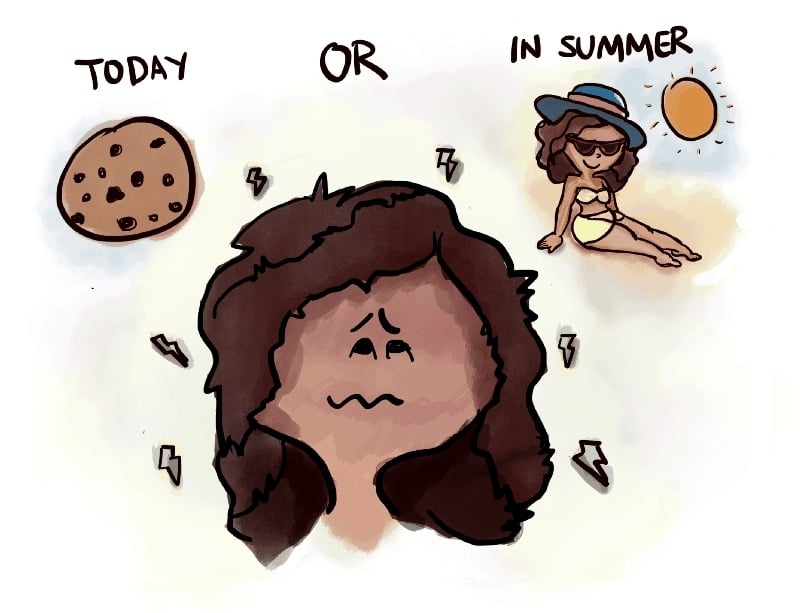
Many important decisions concerning our health, wellness, finances, and careers are affected by hyperbolic discounting. All of these choices require trading off immediate pleasure for your future good.
When you procrastinate, you opt for the instant gratification of enjoying yourself now rather than the future reward of accomplishing the things you set out to do.
You know setting money aside in a 401K is important for your retirement. However, you instead choose to splurge on an expensive night out with friends, which is more fun right now, but might not be the best choice for future you.
Why am I this way?
Cognitive biases, like present biases, are mental shortcuts we use, which generally help us make quick decisions, but don’t always work out for the best.
Our brains were never wired to be truly rational because there is way too much information in the world for us to process. We evolved instead to make decisions quickly.
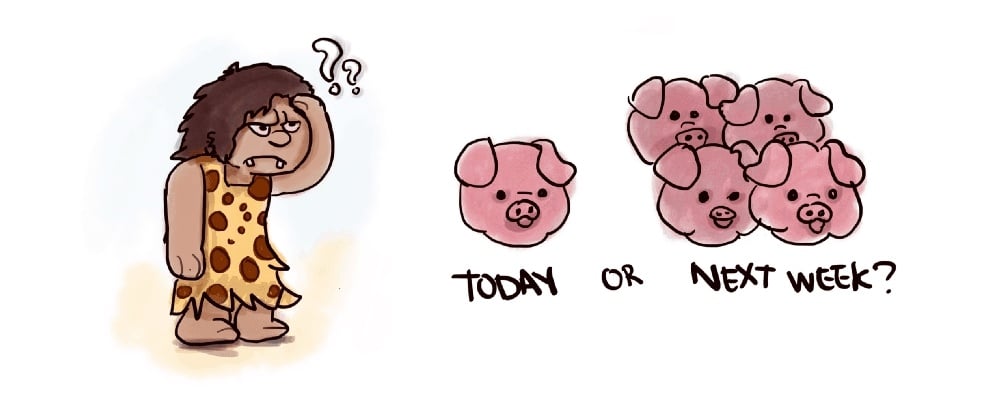
So.. am I screwed?
No! There are ways we can get better at making good choices …
1 . Empathize with your future self
You put things off to future you because it’s easy. It’s easy to assume that your future self has boundless energy, self-discipline, and motivation. Unfortunately, that perfect vision of your future self is not reality.
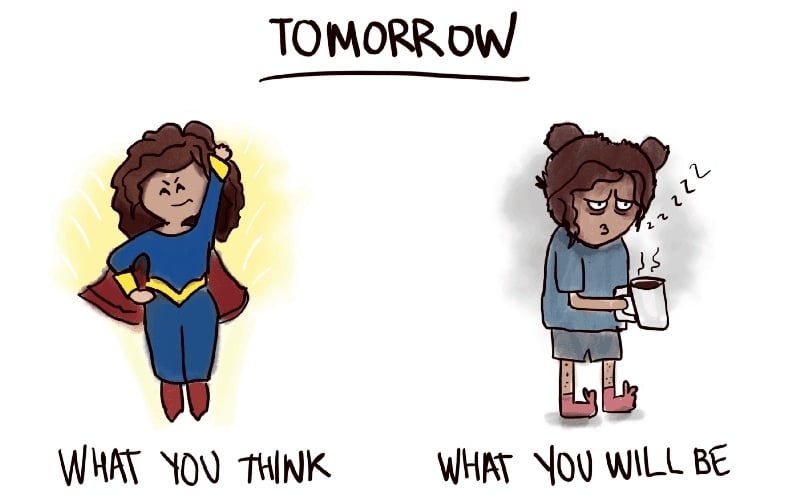
Before putting something off, think about your future mental state — how tired, drained, and sleepy you will likely be. Consciously evaluating the dependability of your future self can serve as motivation to actually do the things you want to do today.
2. Pre-commitment
Hyperbolic discounting tells we’re more likely to procrastinate when decisions are far away.
A pre-commitment is a way to lock future you into a decision. You increase your chance of success by removing a temptation future you may try and weasel out of. The idea is to make it hard for your future self to back out.
Research shows people who commit to saving portions of their future paychecks to their retirement end up saving more money than others.
Subscription meal delivery systems like Freshly and Blue Apron use a similar pre-commitment to keep customers receiving their food orders automatically. By subscribing to healthy food that shows up at your door every week you increase the odds of eating right when the time comes.
Other pre-commitment techniques may include planning out your day with a schedule maker, getting someone else to hold you accountable, or in Nir Eyal’s case, burning cash if you don’t do the thing you said you would.
3. Break down big goals into small manageable chunks
You set big, lofty goals because they yield massive rewards, right? Not so much. Big goals, like learning to speak Spanish or losing 20 pounds, take a long time to achieve and so are susceptible to the far-off reward curse of hyperbolic discounting.
Given the choice between watching TV now (an immediate, but smaller reward) and working toward your goal (a big, but far away reward), you will most likely choose the immediate and small reward.
By breaking down big goals into smaller tasks, your reward comes after the completion of each small chunk instead of at the end. That way, the reward is no longer a far off possibility but something that is more immediate and achievable.
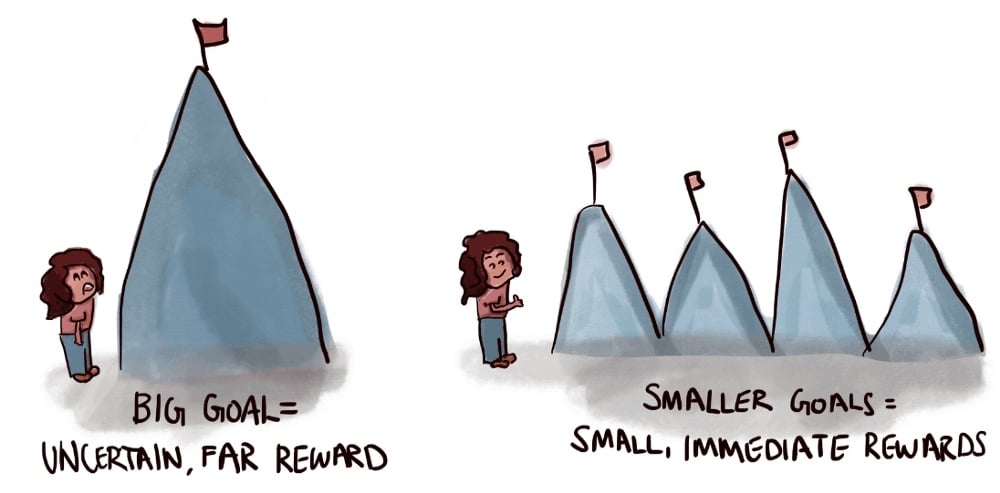
Conclusion
Acknowledging the effect of hyperbolic discounting on our daily decision making and consciously evaluating trade-offs between the present and future, can help you do what you really want. Trust me, future you will be thankful.
Boost Your Productivity
Download our Hyperbolic Discounting Workbook.
Your email address is safe. I don't do the spam thing. Unsubscribe anytime. Privacy Policy.
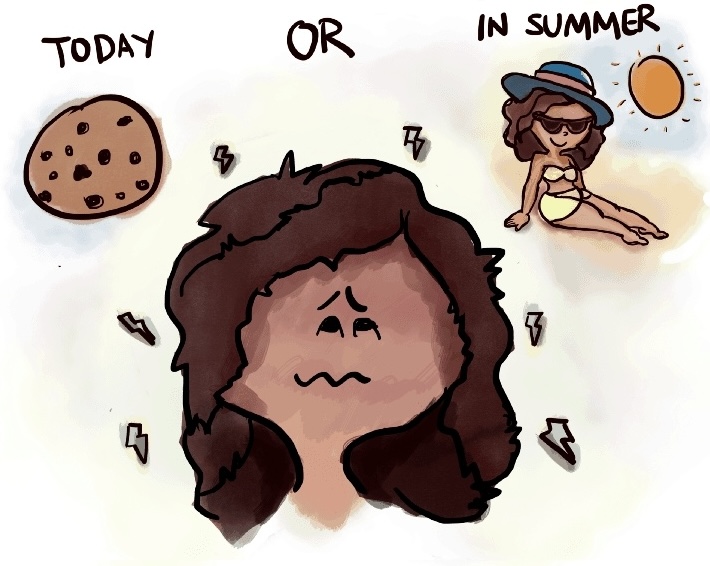
Related Articles
- Schedule Maker: a Google Sheet to Plan Your Week
- Habit Tracker Template in Google Sheets
- The Ultimate Core Values List: Your Guide to Personal Growth
- Timeboxing: Why It Works and How to Get Started in 2024
- An Illustrated Guide to the 4 Types of Liars
- Hyperbolic Discounting: Why You Make Terrible Life Choices
- Happiness Hack: This One Ritual Made Me Much Happier
